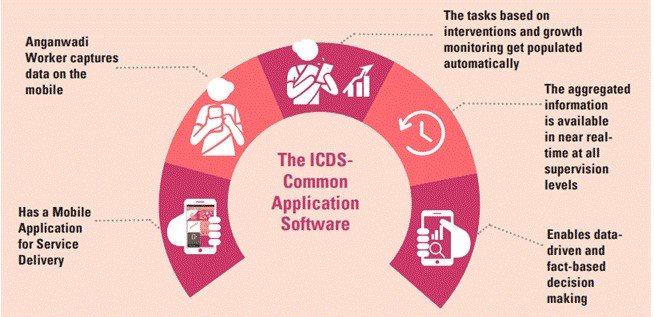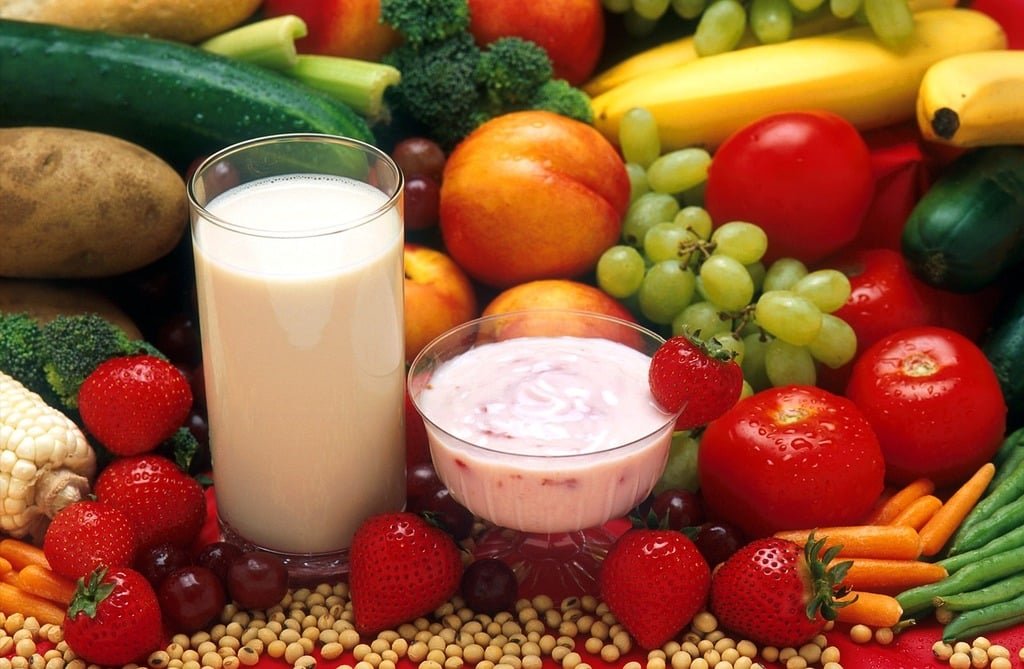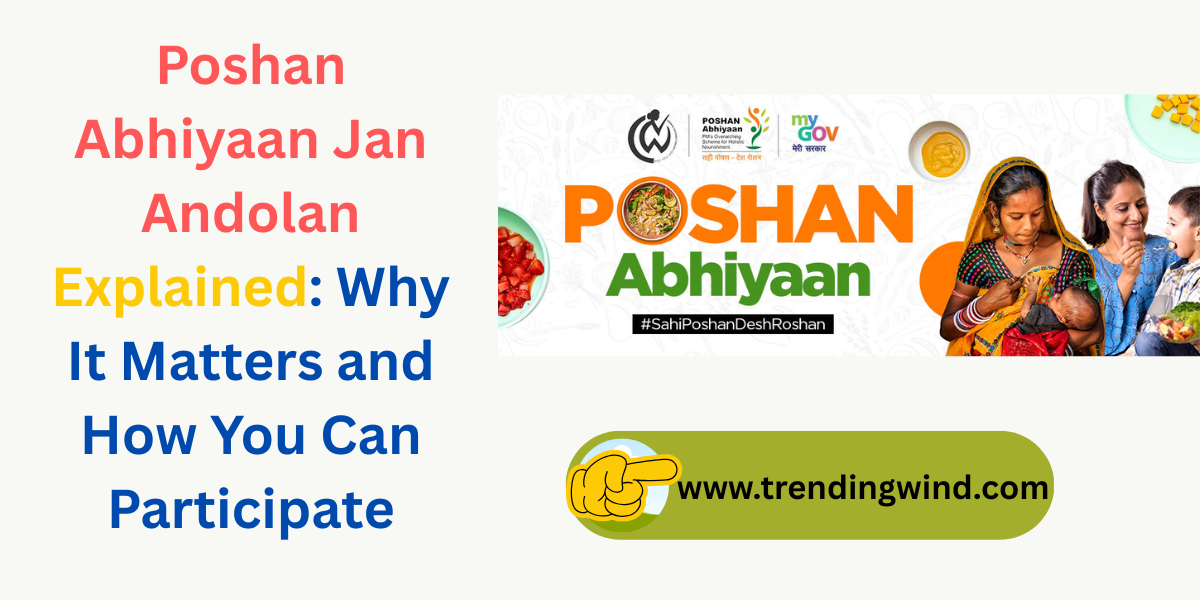The Government of India’s flagship program to enhance the nutritional outcomes for children, teenage girls, pregnant women, and nursing mothers is called Poshan Abhiyaan Jan Andolan, which aims to provide holistic sustenance. On March 8, 2018, the Honorable Prime Minister launched the Poshan Abhiyaan Jan Andolan.
By establishing a convergent eco-system to develop and promote practices that nurture health, wellbeing, and immunity, Poshan Abhiyaan aims to solve the issues of malnutrition by strategically changing the content and delivery of nutrition.
In an effort to raise knowledge of nutrition, enhance health outcomes, and strengthen communities, the Women and Child Development Ministry is commemorating Poshan Pakhwada 2025. This project is a component of Mission Poshan 2.0, which emphasizes empowering individuals and communities overall while strengthening community participation procedures.
According to the government, one of the main focuses of the ongoing Poshan Pakhwada 2025 is the first 1,000 days of life, highlighting the significance of nutrition from conception to age two. The groundwork for long-term development and health is laid at this crucial time. Better health outcomes, more productivity, and higher adult wages are all associated with adequate nutrition during pregnancy and the early years of life. As part of the government’s continued efforts to combat malnutrition, the Ministry is commemorating the 7th edition of Poshan Pakhwada from April 8 to April 22.

Every family should have access to wholesome food, every mother should be properly nourished, and every kid should have a good start in life. Malnutrition, however, continues to be a quiet catastrophe for millions of Indians, affecting not only individuals but also the country’s future. On March 8, 2018, the government introduced Poshan Abhiyaan Jan Andolan, a flagship program designed to improve nutritional outcomes for women and children through a comprehensive strategy, in recognition of the need for revolutionary change. Poshan Pakhwada, one of its main programs, has become a potent vehicle for increasing public awareness and encouraging community involvement in the fight against malnutrition.
Table of Contents(Poshan Abhiyaan Jan Andolan)
7th year of Poshan Pakhwada
- The yearly nutrition awareness campaign, Poshan Pakhwada, is a strong call to action rather than merely another campaign. From April 8 to April 22, 2025, the seventh iteration of Poshan Pakhwada will take place. The 7th Edition of Poshan Pakhwada focuses on outcome-based interventions to improve nutritional well-being, with themes including preventing childhood obesity, improving internet accessibility for beneficiaries, and maternal and newborn nutrition.
With a primary focus on women and children, Poshan Pakhwada 2025 is a step towards creating a nourishing Bharat. Along with Anganwadi Centers nationwide, all of the Government of India’s ministries and departments are planning a number of events to raise community awareness of: - • Give prenatal care, healthy eating, and routine checks top priority.
• Make a commitment to a healthier future by spreading awareness, eating well, and exercising.
• Consume a nutritious, well-balanced diet.
• Every day, consume eight glasses of water.
Things to do and how to participate Poshan Abhiyaan Jan Andolan
Poshan Pakhwada 2025 provides a range of activities aimed at promoting improved nutrition and health. There are many opportunities to get involved, ranging from health examinations at Anganwadi Centers to campaigns about hydration and balanced diets. Individuals are urged to consume wholesome, locally grown food, stay hydrated, and download the Poshan Tracker App in order to monitor their progress. Government agencies will also collaborate during the two-week campaign to raise awareness and bring about constructive change for a healthy future.

What Makes the First 1,000 Days Important?(Poshan Abhiyaan Jan Andolan)
Imagine a woman who is eager to provide the finest start in life for her unborn kid. Her baby’s mental and emotional well-being is influenced by the food she consumes, the medical treatment she receives, and the direction she receives throughout these critical early months. From conception to the child’s second birthday, the first 1,000 days are the most crucial for both cognitive and physical development. The basis for a baby’s future learning, immunity, and general health is laid during this period of extraordinary physical and mental development. Early learning opportunities, love, care, and a nutritious diet may all help them develop into a happy, intelligent, and healthy adult.
As a result, Poshan Abhiyan Jan Andolan has placed a strong focus on the first 1000 days of life, which is truly a child’s magical window. Poshan Pakhwada 2025 seeks to inform families about the value of maternal nutrition, appropriate breastfeeding techniques, and the contribution of a balanced diet to the prevention of childhood anemia and stunting through this year’s themes. Promoting traditional, nutrient-dense foods is another focus, particularly in tribal regions where indigenous diets are the key to improved health.
Also read: What is Sugar daddy: A to Z info
Tradition Meets Technology
What if every meal provided at an Anganwadi Center, every mother’s health, and every child’s development could be monitored in real time? In the battle against starvation, what if technology could guarantee that no child is left behind? Poshan Tracker has made this a reality rather than a “what if.”
Anganwadi Workers (AWWs) can now effectively handle attendance, growth monitoring, meal distribution, and early childhood education—all at their fingertips—thanks to the AI-enabled technology, which was introduced on March 1, 2021, and has replaced heavy registers with real-time tracking via smartphones. The fact that all Anganwadi Centers in India are registered on the Poshan Tracker application as of February 28, 2025, indicates that the application was successful. For the first time, the Poshan Tracker Web Application allows the eligible beneficiaries—children aged 0–6 years, adolescent girls, pregnant women, and nursing mothers—to self-register.

Using Healthy Lifestyles to Combat Childhood Obesity(Poshan Abhiyaan Jan Andolan)
Children who are underweight are not the only ones who suffer from malnutrition. India is still fighting undernutrition, but childhood obesity is becoming a bigger problem. Children are being exposed to more and more foods that are heavy in fat, sugar, salt, energy, and micronutrients in today’s environment.
The percentage of children under five who are overweight has risen from 2.1% in 2015–16 (NFHS–4) to 3.4% in 2019–21, according to the National Family Health Survey (NFHS)-5 (2019–21).
In 2015, the Ministry of Women and Child Development established a working group to address the consumption of meals high in fat, salt, and sugar (HFSS) and to promote healthy snacking in Indian schools. The group’s suggestions were:

• All HFSS meals must not be sold in school canteens, and private vendors must not sell them within 200 meters of schools during school hours.
• Green category items, such as fruits and vegetables, should always be available in school canteens.
• It is not advised for school canteens to serve orange category foods like candy and fried dishes.
• The use of hydrogenated oils in school canteens ought to be completely prohibited.
• Schools ought to require students to participate in physical education.
The Central Board of Secondary Education (CBSE) also published a circular on April 12, 2012, directing associated schools to make sure that nutritious snacks fully replace junk or fast food. The circular also instructed schools to switch to juices and dairy products (such as lassie, chach, and flavored milk) in favor of carbonated and aerated drinks.
Conclusion
Poshan Abhiyaan Jan Andolan is a movement to change nutrition, one meal at a time, one mother, one child, and more than just an awareness campaign. India is making significant strides toward a stronger, healthier generation by empowering Anganwadi workers, integrating communities, and fusing tradition and technology.
But you are where true change starts. Every action matters, whether it’s making healthier food choices, teaching others, or making sure all qualified beneficiaries are included on the Poshan Tracker. Let’s promise to contribute to the solution this Poshan Pakhwada(Poshan Abhiyaan Jan Andolan)—because a stronger India is one that is well-nourished!

2 thoughts on “Poshan Abhiyaan Jan Andolan Explained: Why It Matters and How You Can Participate”